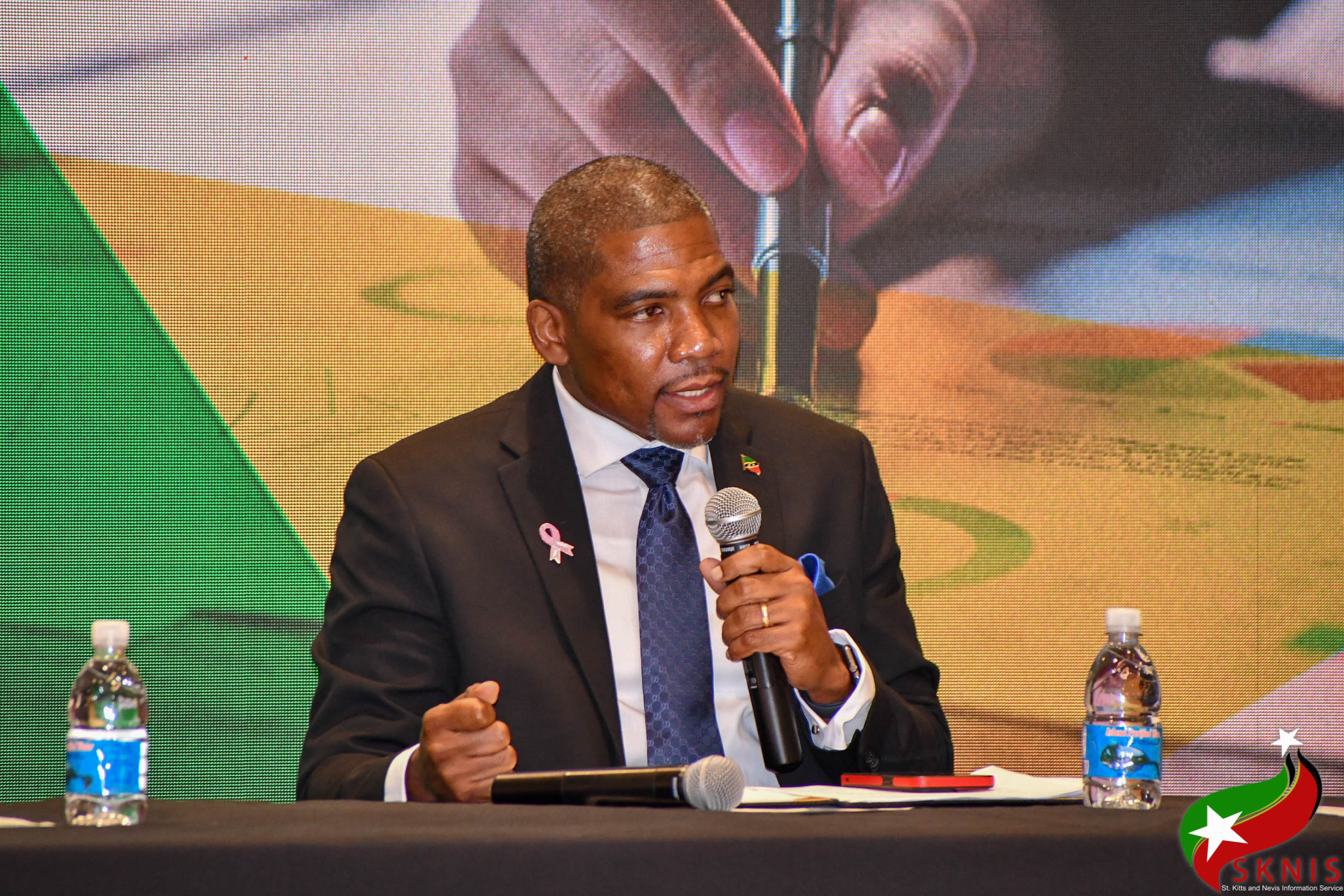Prime Minister Condemns Slander While Upholding Distinction of Free Speech
Prime Minister Hon. Dr. Terrance Drew of Saint Kitts and Nevis has taken a firm stance against the proliferation of defamatory content on digital platforms, emphasizing the critical distinction between protected free speech and malicious online attacks. While unequivocally supporting the fundamental right to freedom of expression, Dr. Drew underscores that this right does not provide carte blanche for spreading false and damaging information, particularly when it targets public figures and potentially jeopardizes the nation’s standing on the global stage. His recent legal actions against individuals propagating such content serve not as a suppression of free speech but as a necessary defense against slander and a reinforcement of responsible online discourse.
Dr. Drew’s actions stem from a series of accusations leveled against him on various online platforms, alleging corruption without presenting any substantiating evidence. These accusations, often disseminated through anonymous profiles and fake accounts, have prompted the Prime Minister to pursue legal recourse, aiming to protect his reputation and the integrity of his office. He argues that allowing such baseless accusations to circulate unchecked not only undermines his credibility but also casts a shadow over the nation he represents, potentially impeding its ability to conduct international affairs effectively.
The Prime Minister’s concern extends beyond personal reputational damage. He highlights the potentially far-reaching consequences of allowing misinformation and slander to proliferate unchecked in the digital sphere. In an interconnected world, where information travels rapidly and widely, false narratives can quickly gain traction, influencing public opinion and even impacting international relations. Due diligence conducted by foreign entities, particularly in the context of international collaborations and investments, can easily surface these unsubstantiated claims, creating a negative perception of the country’s leadership and potentially jeopardizing its economic and political prospects.
Dr. Drew’s assertion that his legal actions are not intended to stifle free speech but rather to uphold the rule of law and protect the nation’s image is a crucial point. He distinguishes between legitimate criticism, which is a cornerstone of democratic discourse, and malicious falsehoods intended to damage reputations and sow discord. The legal framework exists not to suppress dissenting voices but to provide a mechanism for redress when individuals are subjected to unjustified and harmful attacks. The Prime Minister’s recourse to legal action is therefore framed as a defense of both his personal integrity and the broader interests of the nation.
The anonymity afforded by many digital platforms has emboldened individuals to engage in irresponsible and damaging online behavior, believing they can escape accountability. This sense of impunity, Dr. Drew argues, must be addressed. Holding individuals accountable for the information they disseminate online is essential to fostering a more responsible and trustworthy digital environment. While acknowledging the importance of protecting free speech, he stresses that this freedom comes with responsibilities. The right to express oneself does not extend to the right to spread lies and defamatory content with impunity. The Prime Minister’s actions aim to establish a precedent that discourages such behavior and promotes a culture of accountability in online interactions.
The Prime Minister’s stance on this issue reflects a broader global challenge in navigating the complexities of free speech in the digital age. The ease with which information can be created and shared online has created opportunities for both constructive dialogue and the dissemination of harmful misinformation. Finding the appropriate balance between protecting free expression and combating the spread of false and damaging content is a challenge faced by governments and societies worldwide. Dr. Drew’s actions highlight the need for a nuanced approach that acknowledges the importance of free speech while also recognizing the need to hold individuals accountable for the consequences of their online actions. His stance serves as a call for greater responsibility and accountability within the digital sphere, urging citizens to utilize these platforms constructively and refrain from engaging in slanderous and defamatory practices that can undermine individual reputations and damage the national interest.
Share this content:












Post Comment